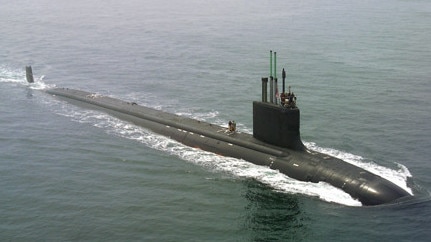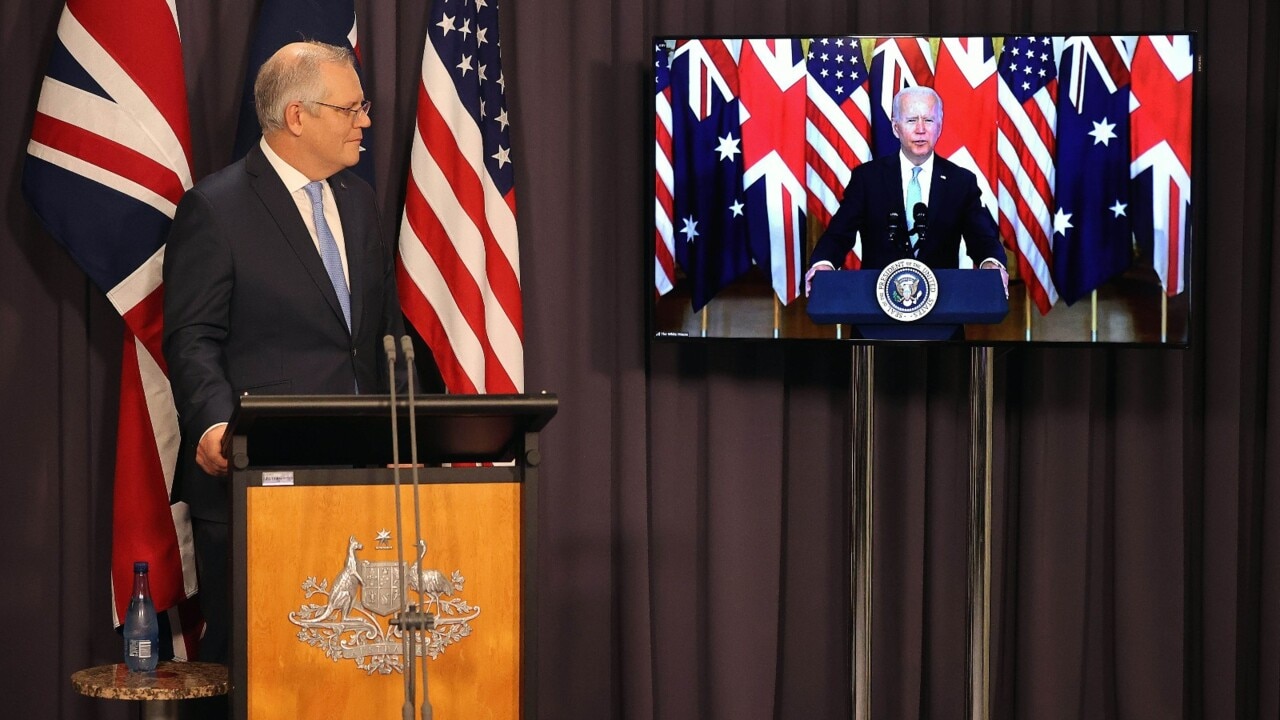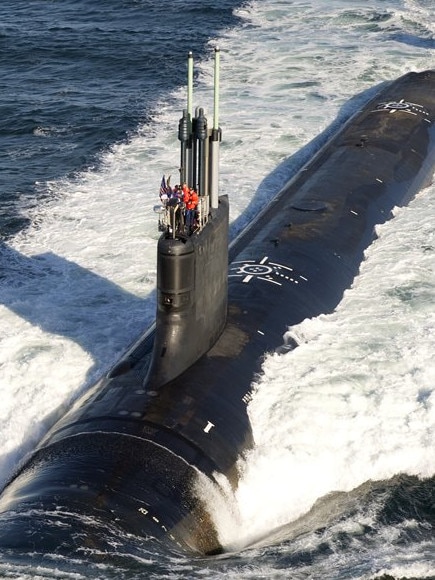AUKUS subs deal sparks Indonesia’s ‘catastrophic’ nuclear concerns
Indonesia has warned the sharing of nuclear-propulsion technology could have “catastrophic” consequences, ahead of a UN meeting examination of Australia’s AUKUS submarine ambitions.

Indonesia has warned the sharing of nuclear-propulsion technology could have “catastrophic” consequences, ahead of a key UN meeting that will examine Australia’s AUKUS submarine ambitions.
In a submission to next week’s UN nuclear non-proliferation treaty review conference, Jakarta said the highly enriched uranium needed for naval propulsion could be diverted to nuclear weapons programs or be used with conventional arms to create “new types of weapons of mass destruction”.
The draft working paper, which does not specifically name Australia, warns any move to share nuclear technology and materials could set a precedent for other countries to do so, undermining efforts to prevent nuclear weapons proliferation.
“Indonesia views any co-operation involving the transfer of nuclear materials and technology for military purposes from nuclear-weapon states to any non-nuclear weapon states as increasing the associated risks and the catastrophic humanitarian and environmental consequences,” the paper said.
Australia’s bid to obtain eight nuclear submarines with the support of the US and Britain will come under a spotlight at the UN conference in New York, where China is expected to lead the objections to the plan.

The AUKUS plan is a test case for the non-proliferation treaty, as Australia would become the first non-nuclear weapons state to operate nuclear-powered submarines.
In a report earlier this month, China warned the AUKUS deal would set a “dangerous precedent”, encouraging a nuclear submarines and missile technology arms race, with a “profound negative impact on global strategic balance and stability”.
But US special representative for nuclear non-proliferation, ambassador Adam Scheinman, said this week that the AUKUS partners would dispute Beijing’s claims, arguing the deal was “a system for nuclear propulsion, not for transfers of nuclear weapons”.
“There is no violation of the NPT, and we’ll be very clear about that at the NPT review conference,” he said.
“I know that China at the NPT review conference will criticise the partnership, although I also think that what China fails to do is to recognise that it’s China’s own actions in the region that have led the partners to close gaps in our security.”
Mr Scheinman said Australia had “impeccable non-proliferation credentials”, with “the highest standards for international safeguards agreements”.
“It has made clear that it has no intent to pursue the fuel production capabilities that might give it some ability to produce nuclear weapons,” he said.

The UN nuclear non-proliferation regime does not cover naval reactors, but transfer of highly enriched uranium is prohibited to non-nuclear weapons states under the treaty. Australia has sought to comply with the treaty with a plan to receive sealed reactors that would not be opened throughout their 30-year life, and would be returned to the US or Britain for decommissioning.
A spokesman for Foreign Affairs Minister Penny Wong said Australia’s commitment to its non-proliferation obligations were “internationally recognised, most recently by the director-general of the International Atomic Energy Agency, Rafael Mariano Grossi”.
Mr Grossi said during his visit to Australia earlier this month: “Australia is a key IAEA partner, and I am satisfied with the country’s expressed commitments to comply with all of its obligations towards nuclear non-proliferation.”
But experts are divided on the non-proliferation impacts of the AUKUS plan.
The Carnegie Endowment for International Peace’s nuclear policy program manager, James Acton, warned it would “set a damaging precedent”.
“In the future, would-be proliferators could use naval reactor programs as cover for the development of nuclear weapons – with the reasonable expectation that, because of the Australia precedent, they would not face intolerable costs for doing so,” he said.







To join the conversation, please log in. Don't have an account? Register
Join the conversation, you are commenting as Logout